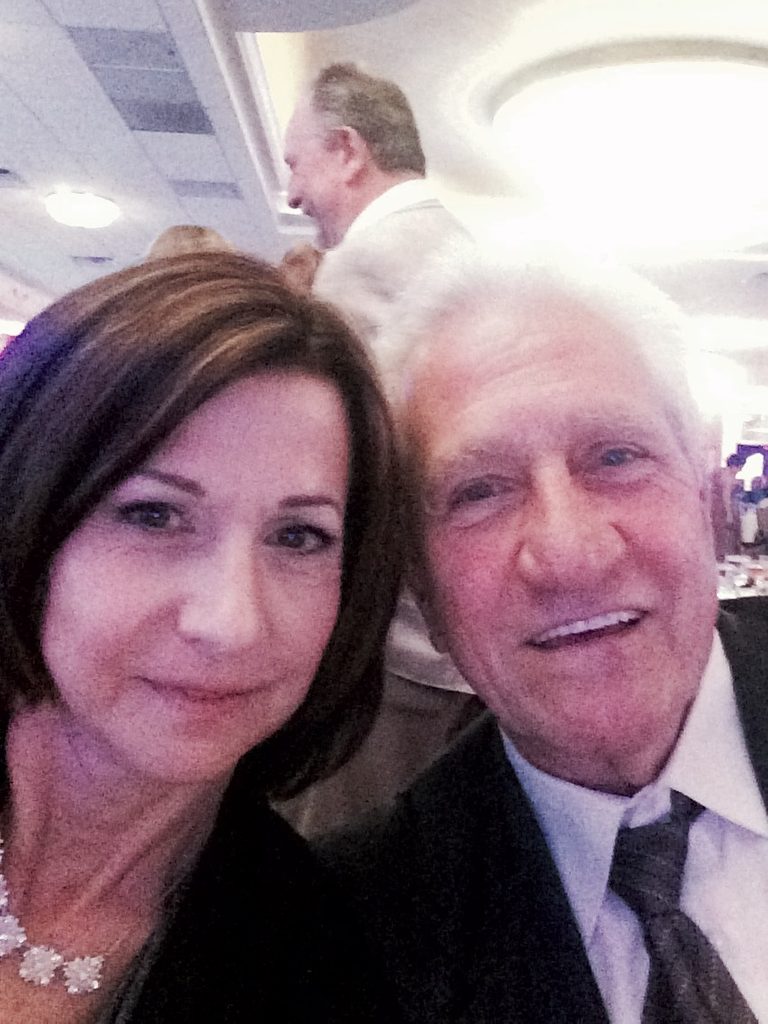My “Heartburn” Turned Out to Be Cancer
Updated: Feb. 07, 2019
Joe Moore suffered from acid reflux and heartburn for almost 40 years before being diagnosed with stage 3 esophageal cancer. He's on a mission to make others aware of the warning signs.
 Joe Moore has battled heartburn since he was 15 years old—and he’s now 66. The retired plumber of Washington Township, NJ, had watched his father battle chronic heartburn, and he knew exactly what his symptoms meant. The part he didn’t realize is that his chronic heartburn—called gastroesophageal reflux disease or GERD—was leading to a deadly outcome.
Joe Moore has battled heartburn since he was 15 years old—and he’s now 66. The retired plumber of Washington Township, NJ, had watched his father battle chronic heartburn, and he knew exactly what his symptoms meant. The part he didn’t realize is that his chronic heartburn—called gastroesophageal reflux disease or GERD—was leading to a deadly outcome.
“I watched my father treat his symptoms with over the counter antacids and baking soda—so I did the same.” As he got older his symptoms remained, often worsening after a late meal. “I would take Tums and it went away.” What he didn’t realize, he says, is that only the pain went away—the digestive acid was still doing damage. Late-night eating is just one of the 8 surprising heartburn triggers you need to take seriously.
It wasn’t until he began experiencing a nightly occurrence of hiccups and an odd twisting sensation in his chest that Moore began wondering if something else was going on. “I knew at that point that something wasn’t right,” he says. Moore’s primary care physician referred him to a gastrointestinal doctor for an endoscopy—a technician snaked a tube with a camera down his throat to check out the damage in his digestive tract. “After the endoscopy, the doctor came back to me and said, ‘Joe you have stage 3 cancer.” His doctor gave him a year to live. “When you hear someone say you have cancer and it’s bad—you think of your kids and family first. I spent the next year getting my affairs in order.”
Moore sought treatment at Thomas Jefferson University Medical Center in Philadelphia, by Anthony Infantolino, MD, FACP, a professor of medicine at Sidney Kimmel Medical College. “They treated me with chemotherapy for a year and then radiation for 40 days straight afterward. They were very aggressive in their treatment.”
Remarkably, Moore’s treatment was successful, and he was deemed by doctors to be cancer-free, though he was still at high risk for reoccurrence. When his doctors suggested removing the diseased part of his esophagus, he didn’t hesitate: “They gave me the option to have an esophagectomy, and I took it.” He says he opted for the surgery because the cancer was certain to return. Don’t miss these 23 groundbreaking cancer discoveries that could save your life.
The surgery removed most of Moore’s esophagus, replacing it with a tube constructed from the lining of his stomach. “I no longer have the valve that keeps food in the stomach,” he says, and as a result of the drastic surgery, Moore’s stomach is a quarter of the size it was. He now has to sleep sitting up, and disturbingly, he can vomit up to twenty times per week. “It’s normal to me now. Life is not the same—but I’m still here. If it weren’t for those hiccups, I wouldn’t be.”
“Heartburn can be easily treated with medication,” Dr. Infantalino tells Reader’s Digest, “but that alone will not prevent esophageal cancer. A person should not just take medications for long-standing heartburn without getting checked.” That goes for both over-the-counter and prescribed acid reducers, he says. “The only way to prevent esophageal cancer is to know whether the lining of the esophagus has been altered from years of acid reflux. The other ways to prevent esophageal cancer is to not smoke, avoid obesity, and drink only occasionally.”
Occasional heartburn is common—more than 15 million Americans experience symptoms daily. However, chronic heartburn can lead to GERD, a digestive disorder in which the stomach’s contents wash back into the esophagus, causing damage. Left untreated like Moore’s case, GERD can lead to esophageal cancer, the sixth most common cause of cancer deaths. “If a person has had heartburn at least three times a week for at least three to five years, especially if that person is a Caucasian male between 45 and 70, obese, a smoker, and has a family history of Barrett’s esophagus or esophageal cancer, you should tell your doctor,” Dr. Infantalino advises. Here’s how to tell the difference between acid reflux, heartburn, and GERD.
For more information about the link between heartburn and cancer, visit Prevent Heartburn Cancer.
